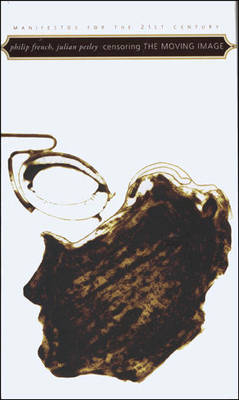Manifestos for the 21st Century - (Seagull Titles CHUP)
2 total works
"Manifestos for the Twenty-first Century" is a "Seagull Series" created in collaboration with "Index on Censorship", a home and a voice for freedom of expression since it was founded in 1972. Film's power to move, to disturb, to terrify is unlike that of any other medium. This is why, throughout its history, Film has been feared, controlled and censored as well as celebrated. The notion that censorship was necessary - to preserve society, to protect people from each other, to save ourselves from our baser instincts - has been widely held by all levels of society. But, as the first great mass medium, cinema provided politicians and other guardians of morality with their prime target for censorship in the 20th Century.In the West, the debates over censorship in film have usually focused on sex and violence, but censorship for political and religious reasons is still a reality in many parts of the world, and film-makers still often risk imprisonment or death. Analysing how film audiences have been treated like children and filmmakers as potential enemies of the state, Julian Petley and Philip French present the savage and ongoing history of film and censorship.
"Manifestos For The Twenty-First Century" is a Seagull Series created in collaboration with Index on Censorship, a home and a voice for freedom of expression since it was founded in 1972. Since the Enlightenment, freedom of expression has been regarded as one of the hallmarks of Western democratic societies. In the 20th Century, the Universal Declaration of Human Rights laid down the global principle that: "everyone has the right to freedom of expression. This right shall include freedom to hold opinions and to receive and impart information and ideas without interference by public authority and regardless of frontiers."From the Enlightenment, the ideas of Milton, Locke, Mill and Jefferson developed into a classical paradigm of free speech which went largely unquestioned for over two hundred years. The modern globalised world has seen an end to such assumptions. The uproar and violence over both "The Satanic Verses" and the Danish "Jyllands Posten" cartoons raised the question of whether freedom of expression - from a global perspective, most specifically an Islamic one - is an outdated legacy of Western Enlightenment or a vital and necessary tradition which must be protected.Increasingly, the dominance of global media organisations and their responsibility to reporting the facts has led to calls for legislation for corporate freedom of expression.
And, meanwhile, all pervasive, is the Internet, the new home for individual expression and the new home for the effective dissemination of religious and racial hatred and criminal sexual deviance. "Censoring the Word" asks if we now live in an age when freedom of expression can no longer be absolute.
And, meanwhile, all pervasive, is the Internet, the new home for individual expression and the new home for the effective dissemination of religious and racial hatred and criminal sexual deviance. "Censoring the Word" asks if we now live in an age when freedom of expression can no longer be absolute.

